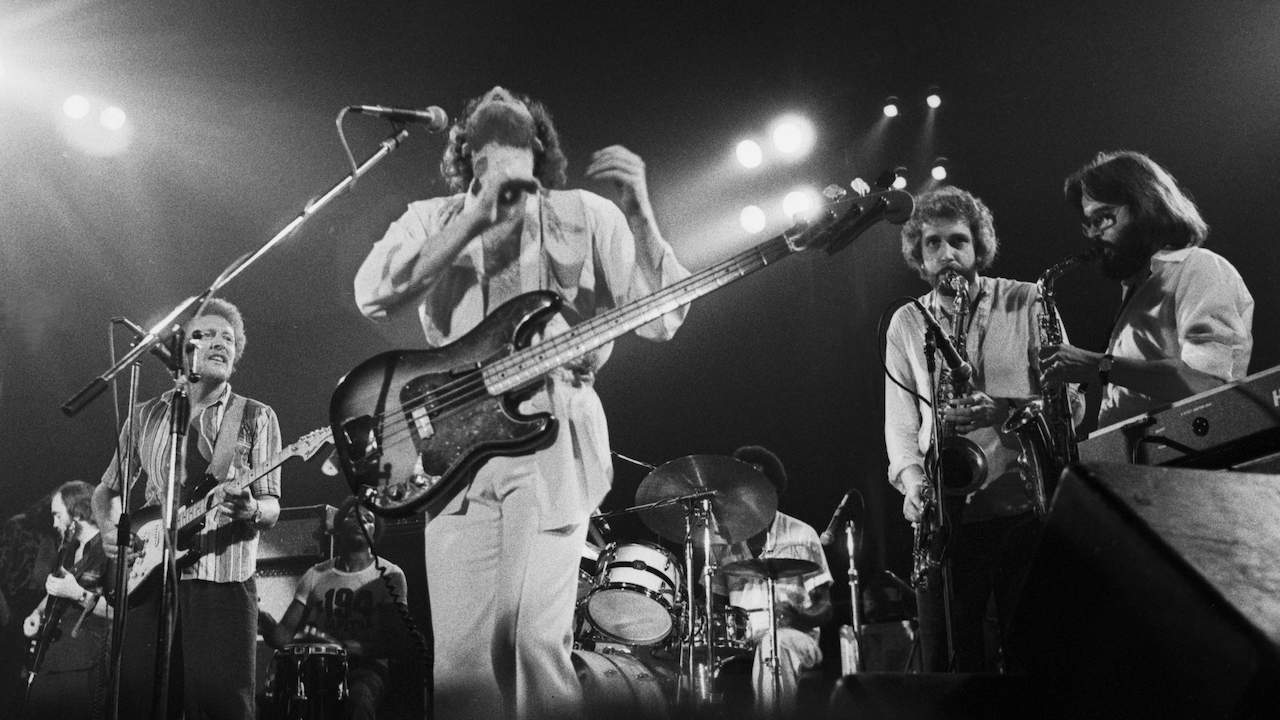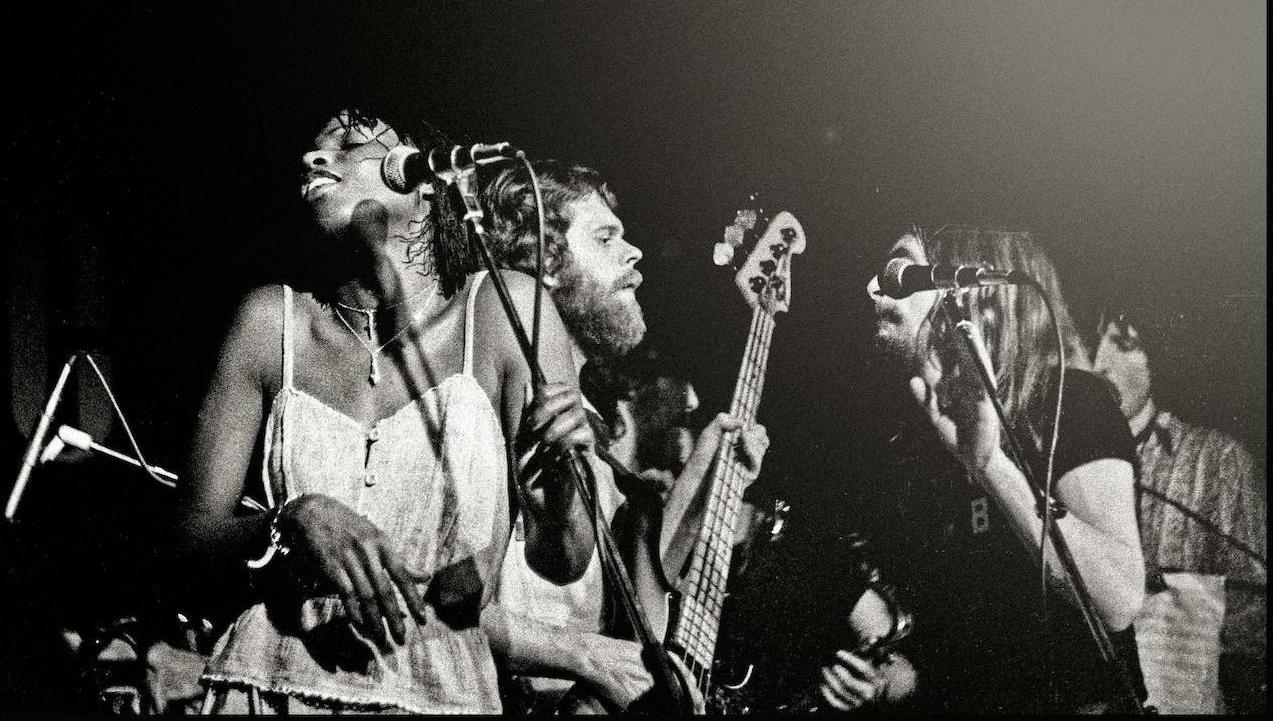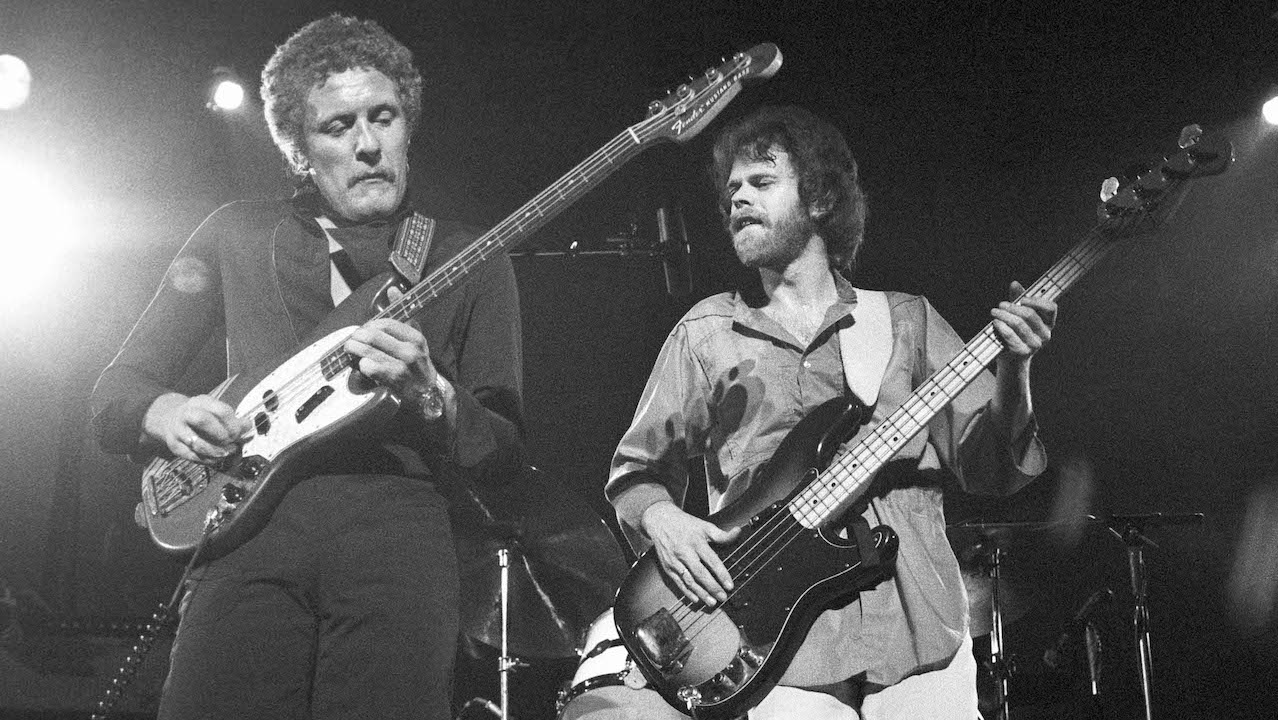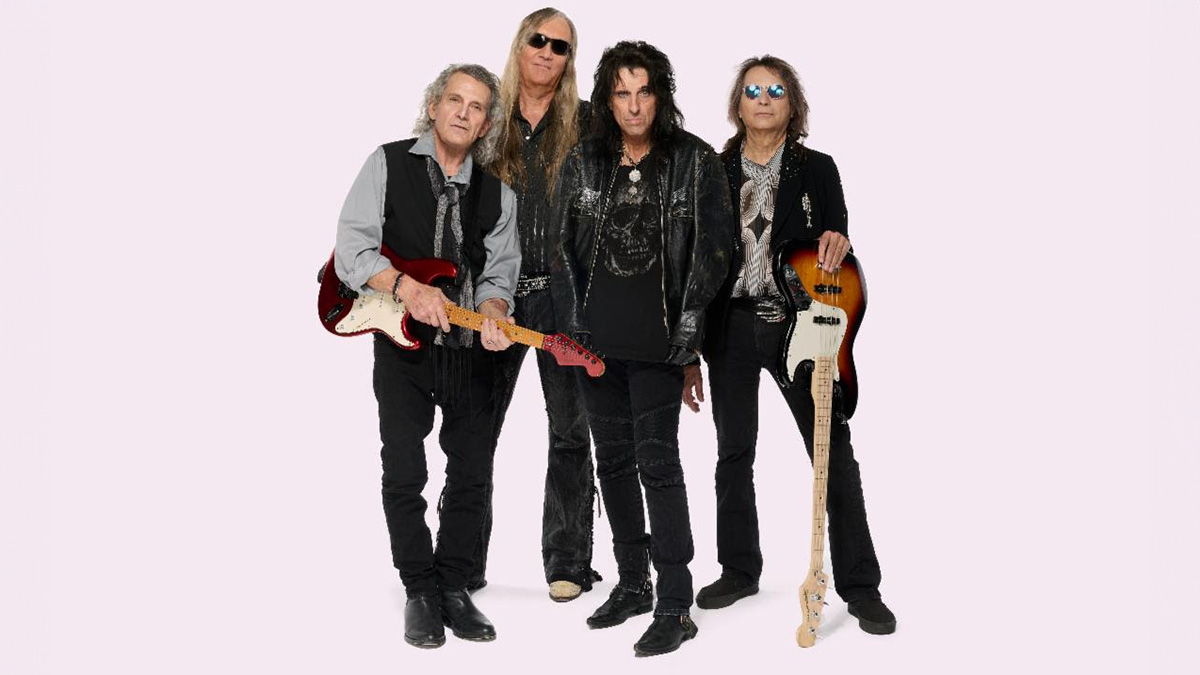Alan Gorrie: “There was no big time about Jimi Hendrix or Keith Moon – we hung out with those guys every night”
The AWB bassist looks back on life in London in the ‘70s and getting their first break as the Average White Band

Formed in 1971 by Alan Gorrie and tenor saxophonist Malcolm Duncan, with Onnie McIntyre, Hamish Stuart, Robbie McIntosh and Roger Ball all joining later, the Average White Band gained legions of fans with their popular mix of 60s funk, soul and R&B. The group’s infectious, hook-laden grooves were outlined perfectly in their timeless instrumental hit, ‘Pick Up The Pieces’, which topped the US singles charts in 1975 and preceded several gold-selling albums.

Gorrie, McIntyre, McIntosh and Stuart, along with the ‘Dundee Horns’, as Malcolm Duncan and Roger Ball were known, first met in Perth and Glasgow in the late 60s, but it wasn’t until all six future members had relocated to London that they earned their first break as the Average White Band.
“We had all left Scotland with a pretty strong instinct that we would eventually form a band,” said Alan when I interviewed him for Bass Guitar magazine, “and London was just a terrific place to be. Everybody knew everybody and there was no big time about Jimi Hendrix or Keith Moon and the guys from The Who – we all rubbed shoulders and were very free about sharing ideas. That’s the way it was back then – the music community was just that, a real community.”

Shortly after hearing the band at Eric Clapton’s 1973 ‘Rainbow Concert’, Clapton’s then tour manager, Bruce McCaskill, agreed to manage the band and borrowed money to relocate to the US, where they began work on the eponymous AWB The White Album. “In those days New York was just like London,” says Alan. “It was a continuation of that vibe, but it was even more musical because of the jazz clubs and guys like Stan Moore, Will Lee, the Brecker Brothers, Steve Gadd; we hung out with those guys every night. We all fed off that.”
Despite notching up successive hit singles, the group disbanded in 1982, with Hamish Stuart jumping aboard Paul McCartney’s Flowers In The Dirt world tour, and Gorrie releasing a solo record of his own, Sleepless Nights, in 1985.
We asked Alan to wax lyrical on his top five Average White Band tracks.
Pick Up The Pieces (1974)
"The bass part was a lot busier in its creative stages and in the demo, but we broke it down for the first version we recorded. That was before we met Arif Marden and went to Atlantic, and then Jerry Wexler set about losing some more notes from it. They did the same with Robbie’s drum part. So the bassline evolved from a very busy part down to the bare essentials. He was like, ‘All these notes don’t make me dance, take away those ones in the middle and just leave the outside framework.’ That was all that was needed and Jerry saw that.
Cut The Cake (1975)
"This track evolved on the studio floor. Atlantic needed a follow up to ‘Pick Up The Pieces’ that still had the trademark funk horn lines, so ‘Cut The Cake’ was the track we went to work on. We pretty much wrote and recorded it in two days. Hamish played bass and I was playing guitar. So it was Hamish on his Fender Mustang with a pick, me on my Gretsch guitar playing a skank guitar line, Onnie playing his trademark ‘chang-a-lang’ guitar part, and there was just a bass part there that fitted between these two guitar parts and tied them together.
Person To Person (1974)
"Like ‘Pick Up The Pieces’, the bass part evolved and got broken down. If you listen to the Sony release of The White Album, there’s another version from The Clover Sessions, as it’s called, which is the version we did by ourselves without Arif. It has a much funkier bass part, but not one that supported the track as well as the one with Arif. I applied what we’d learnt from the recording of ‘Pick Up The Pieces’, so the bassline just caught the right accents with the kick drum and gave it more propulsion by taking some of the grace notes out.
Get The Pick Newsletter
All the latest guitar news, interviews, lessons, reviews, deals and more, direct to your inbox!
Put It Where You Want It (1973)
"So we met the Crusaders when we first went to LA and got to know Stix and Joe Sample, and we all loved that tune. The bass line is somewhere between a reggae part and a straight bass part, which was on the Crusaders original. I don’t quite play it the same nowadays; I don’t know why I can’t seem to play it the same way as I did in 1973 – it doesn’t quite sit the same. That was a bass part that Robbie had a lot to do with; he and I meshed in a lot of ways and he was a big reggae fan too. So some of the fills on that track you’d hear on a reggae track. We were both messing with it in our halfway zone – a creole zone.
School Boy Crush (1975)
"The bassline is pure Hamish, and again played with a pick on his Fender Mustang. It’s such a standout funk track. I’m playing the skank guitar line. The track evolved from Hamish, Steve and I messing around, writing for the Cut The Cake album – it was one of those things that just fell into place. We didn’t tinker with it or change anything; straight away it was the real deal, and then Ollie came in and added the rhythm guitar part, which was the glue that held it all together. Hamish is the essence of simplicity in that part. As soon as he kicked in with that bass line the whole thing just took off."
The current Average White Band line-up sees original members Alan Gorrie and Onnie McIntyre joined onstage by US recruits Klyde Jones, Rob Aries, Brent Carter, Fred ‘Freddy V’ Vigdor and drummer Rocky Bryant.
Visit averagewhiteband for more info.

Nick Wells was the Editor of Bass Guitar magazine from 2009 to 2011, before making strides into the world of Artist Relations with Sheldon Dingwall and Dingwall Guitars. He's also the producer of bass-centric documentaries, Walking the Changes and Beneath the Bassline, as well as Production Manager and Artist Liaison for ScottsBassLessons. In his free time, you'll find him jumping around his bedroom to Kool & The Gang while hammering the life out of his P-Bass.
“When I first heard his voice in my headphones, there was that moment of, ‘My God! I’m recording with David Bowie!’” Bassist Tim Lefebvre on the making of David Bowie's Lazarus
“One of the guys said, ‘Joni, there’s this weird bass player in Florida, you’d probably like him’”: How Joni Mitchell formed an unlikely partnership with Jaco Pastorius




![[from left] George Harrison with his Gretsch Country Gentleman, Norman Harris of Norman's Rare Guitars holds a gold-top Les Paul, John Fogerty with his legendary 1969 Rickenbacker](https://cdn.mos.cms.futurecdn.net/TuH3nuhn9etqjdn5sy4ntW.jpg)





